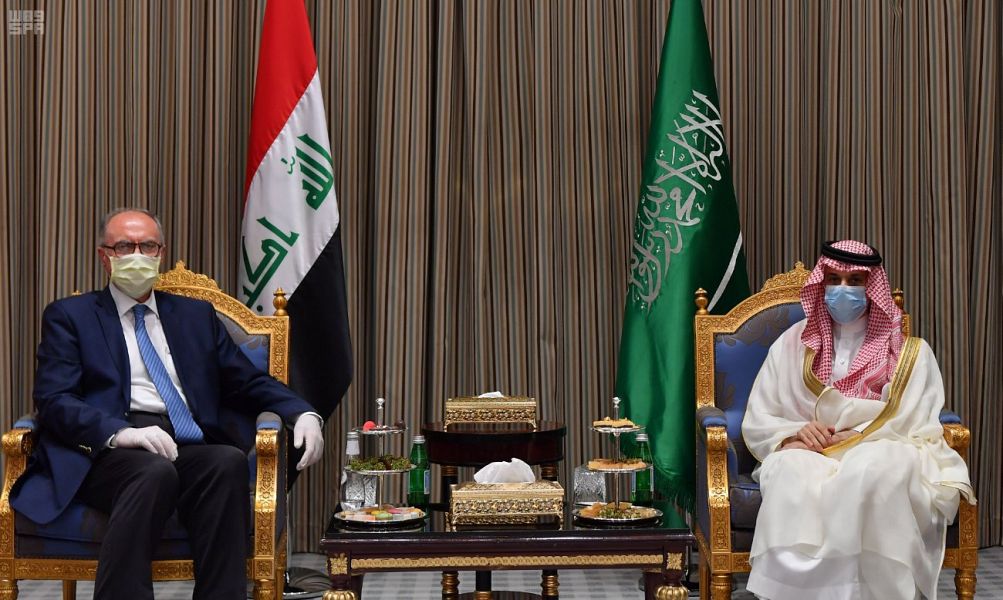
Saudi Arabia and Iraq are building rapport by basing their relationship on shared concerns: security, global oil markets, and economic interests. A virtual summit between Iraqi Prime Minister Mustafa al-Kadhimi and Saudi Crown Prince Mohammed bin Salman earlier this month and the re-opening of the Arar land border crossing after 30 years were the culmination of a patient engagement by both governments over the past four years. A change in leadership on both sides and a new focus on pragmatism paved the way for the breakthrough, especially in Baghdad, as Haider al-Abadi successfully utilized international support during the fight against ISIS to pivot into the Arab world. Riyadh gradually shifted toward mending ties with Iraq’s Shi’a Arab moderates after years of financial support for Sunni Arab politicians and organizations, taking advantage of rising Iraqi nationalism and anti-Iranian sentiment as demonstrated by Iraq’s youthful protest movement.
In the short term, Riyadh aims to maintain Baghdad’s commitment to the OPEC+ oil production cuts crucial for its revenues. Driving them, Saudi Arabia was able to preserve 80% of its 2020 forecast oil revenues. In comparison, Baghdad lost 47.5% of its revenues in the first eight months of 2020. Iraqi oil production is at a five-year low and a reversal in Baghdad’s oil policy, however technically and financially challenging, could flood oil markets and depress prices earlier than other producers aim. For Saudi Arabia, Iraq’s economic fragility is a threat to the deal’s sustainability. Other objectives include tapping into Iraq’s import-reliant market and winning key energy infrastructure projects.
For its part, Iraq sees an opportunity to bring in much-needed foreign direct investment from the Saudis, and hopefully other Gulf investors, and perhaps even a cash stimulus — money that would likely come with fewer preconditions for economic reforms and a lower political cost than that offered by multilateral lenders or international investors.
In the long run, Riyadh is positioning itself to counter Iranian and Turkish influence in Iraq. This is quietly welcomed in Baghdad by moderate factions across ethnic and sectarian lines. Tehran- affiliated actors have cautiously watched this rapprochement in the last few years with minimal intervention; at the end of the day the practicalities of business in Iraq dictate their indirect involvement and benefit. However, populist rhetoric against Saudi investments has picked up recently. This has capitalized on a dent in al-Kadhimi’s popularity as the government has struggled to pay public sector wages, and is aimed at appeasing the radical Shi’a base in the run-up to the 2021 elections.
While Baghdad’s economic expectations from Riyadh may be high, the Saudis have learned to be risk averse and focus on return on investment. The bitter taste of failed economic support to Lebanon still lingers. For now, the Saudis and Iraqis will have to continue building on their successful secular approach to re-engagement and translate it to mutually beneficial and purely economically viable ventures.
Originally published by Middle East Institute here.











